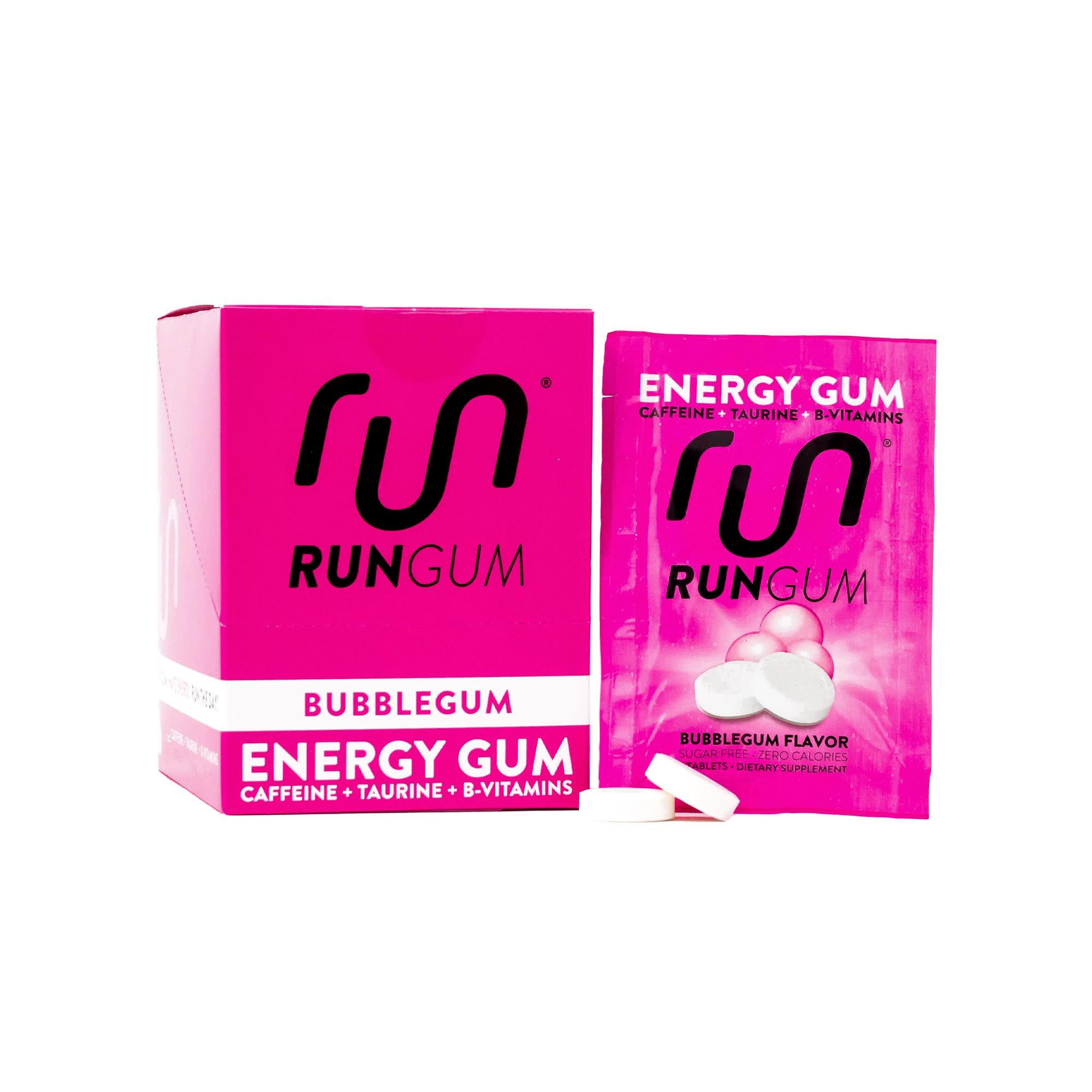Have you ever wondered if chewing gum has any calories? The answer is yes, but the amount is negligible. In fact, chewing gum can even help you cut down on calories by suppressing your appetite and reducing snacking.
One study conducted by the University of Rhode Island found that chewing gum can reduce the desire for sweets and snacks. Participants who chewed gum consumed about 40 fewer calories at the next meal compared to those who didn’t chew gum. This could be because chewing gum keeps your mouth busy and distracts you from snacking.
Now, let’s talk about the calories in gum. The calories come from the soluble components, mostly sugars, that you swallow while chewing. The gum base, which is often made of synthetic polymers today, is indigestible and adds no calories.
A stick of Wrigley’s sugar-free gum contains only 5 calories, which is about as many calories as a small stick of celery. A stick of regular gum typically has about 10 calories, still not a lot, especially if you’re the type that makes a single stick last for an hour.
So, if you’re worried about the calories in gum, don’t be. The amount is so small that it won’t make a significant difference in your daily caloric intake. However, if you’re looking to cut back on snacking and reduce your overall calorie intake, chewing gum could be a helpful tool.
It’s important to note that chewing gum shold not be used as a substitute for a healthy diet and regular exercise. It’s just one small step you can take to help you reach your weight loss goals.
Chewing gum does have calories, but the amount is insignificant. Chewing gum can even help you cut down on calories by suppressing your appetite and reducing snacking. So, go ahead and enjoy that stick of gum without worrying about the calories.
The Effects of Chewing Gum on Weight Gain
Chewing gum itslf does not contain any significant calories that can contribute to weight gain. However, some types of chewing gum contain sugar or artificial sweeteners, which can add calories and potentially contribute to weight gain if consumed in excess. It’s important to check the nutrition label before choosing a gum to ensure it aligns with your health goals. Additionally, some studies suggest that chewing gum can actually help suppress appetite and reduce snacking, which could potentially aid in weight loss efforts. Ultimately, the impact of chewing gum on weight gain or loss depends on various factors, including the individual’s overall diet and lifestyle habits.

Source: livestrong.com
Are There Calories in Chewing Gum?
Gum, also known as chewing gum, is a type of soft and elastic candy that is designed to be chewed but not swallowed. It is made up of a gum base, sweeteners, flavorings, and other additives. When you chew gum, the soluble components, such as sweeteners and flavorings, are released and dissolved in your saliva. These components are digested and absorbed by your body, providing you with some calories.
However, the gum base itself is indigestible and passes through your digestive system unchanged. Since it is not broken down or absorbed by your body, it does not contribute any calories. Therefore, if you chew gum but do not swallow it, you will not consume any calories from the gum base.
It is worth noting, however, that some types of gum contain sugar or other calorie-containing additives. If you are concerned about your calorie intake, it is important to check the label of the gum you are consuming to determine its calorie content. Additionally, while chewing gum may not provide significant calorie intake, it is important to consume a balanced diet and engage in regular physical activity to maintain overall health and well-being.
Calorie Content of One Piece of Gum
One piece of gum can vary in calorie content depending on the type of gum. A stick of Wrigley’s sugar-free gum, for example, contains about 5 calories, which is roughly the same as a small stick of celery. On the other hand, a stick of regular gum usually contains around 10 calories. However, it’s worth noting that gum is generally a low-calorie food and may not significantly impact your daily calorie intake, especially if you’re the type to make a single stick last for an extended period of time.
The Effectiveness of Chewing Gum for Weight Loss
While chewing gum can have some health benefits, it is not an effective tool for weight loss. Sugar-free gum can freshen breath, promote saliva production, and even help prevent tooth decay. However, the act of chewing gum does not burn calories or suppress hunger. In fact, some studies have shown that chewing gum can increase feelings of hunger and lead to overeating. Additionally, consuming excessive amounts of sugar-free gum can cuse digestive discomfort and even have a laxative effect. Therefore, while gum can be a helpful addition to an overall healthy lifestyle, it should not be relied upon as a weight loss aid.
The Effectiveness of Chewing Gum for Weight Loss
While chewing gum may have some minor benefits, such as freshening breath and reducing stress, it is unlikely to be an effective tool for weight loss. One study found that chewing gum may burn approximately 11 calories per hour, which is comparable to the small amount of extra calories burned by fidgeting or tapping one’s toes. However, this calorie burn is relatively insignificant and is unlikely to result in significant weight loss. Additionally, some types of gum may cotain sugar or other sweeteners that can contribute additional calories to a person’s diet. Therefore, while chewing gum may have some small benefits, it is not a reliable or effective strategy for weight loss. A healthy diet and regular exercise remain the most effective ways to achieve and maintain a healthy weight.

Source: amazon.com
The Impact of Spitting Out Food on Calorie Intake
Calories do count even if you spit food out. When we chew food, our saliva mixes with it, breaking it down and preparing it for digestion. This process also sends signals to our brain to release digestive enzymes and hormones that help regulate our metabolism. When we spit food out, we may not be consuming the food, but we sill take in some of the calories and nutrients from it. Additionally, if we repeatedly chew and spit out food, it can lead to an unhealthy relationship with food and potentially contribute to disordered eating habits. Therefore, it is important to be mindful of our food choices and eating habits to maintain a healthy balance in our diet.
Does Chewing Gum Break a Fast?
It depends on what type of fasting you are following. Sugar-free gum is low in calories and has minimal effects on insulin levels, so it is unlikely to significantly break your fast. However, some stricter forms of fasting, such as water fasting or dry fasting, prohibit any calorie intake, including gum. It’s essential to understand the rules and guidelines of your specific fasting plan to determine whether chewing gum is allowed. As a general rule, if you’re not sure whether a paticular food or beverage will break your fast, it’s best to avoid it altogether to ensure the best results from your fasting efforts.
The Dangers of Consuming Excessive Amounts of Gum
Chewing gum can be a fun and enjoyable way to freshen up your breath and relieve stress. However, too much of a good thig can be harmful to your body. While the amount of gum that is considered “too much” can vary from person to person, it is generally recommended that you do not exceed 20 pieces of gum per day. Chewing excessive amounts of gum can lead to stomach problems such as bloating, gas, and even diarrhea. Additionally, some types of gum contain artificial sweeteners that can have negative effects on your health if consumed in large quantities. It’s important to listen to your body and be mindful of how much gum you are consuming to avoid any potential health issues.
The Impact of Chewing Gum on Hunger and Satiety
Chewing gum has been found to have an effect on feelings of hunger and fullness. Research studies have shown that chewing gum for at least 45 minutes can significantly suppress feelings of hunger, appetite, and cravings for snacks. Additionally, chewing gum can promote feelings of fullness. Therefore, it can be concluded that chewing gum can make you feel full rather than hungry. However, it is important to note that the effects of chewing gum on appetite control may vary among individuals and may not be a substitute for a balanced and healthy diet.

Source: healthline.com
The Health Benefits of Chewing Gum
Chewing gum can be healthy, but it depends on the type of gum you choose. Sugarless gum is the healthiest option as it does not contain any cavity-causing sugars. Instead, it is sweetened with non-cavity-causing sweeteners such as aspartame, sorbitol, xylitol, or mannitol. Chewing sugarless gum can help increase the flow of saliva, whih reduces plaque acid and strengthens teeth. It can also reduce tooth decay by neutralizing harmful acids in the mouth. However, it is important to note that chewing gum should not be used as a substitute for brushing and flossing, which are essential for maintaining good oral health. Additionally, some gum may contain harmful additives, so it is essential to read labels carefully and choose gum with the ADA Seal of Acceptance. when consumed in moderation and with careful consideration of the type of gum, chewing gum can be a healthy habit for your oral health.
How Long Should I Chew Gum For?
When it comes to chewing gum, the duration you should chew depends on the type of gum you have. If you are chewing regular gum, it is recommended that you chew for about 20 minutes to get the best results. This is because chewing increases the flow of saliva, wich can help to wash away bacteria and neutralize acid in your mouth that can cause tooth decay.
However, if you are chewing sugar-free gum, you may want to chew for a longer period, up to 30 minutes or even longer. This is because sugar-free gum often contains xylitol, a natural sugar substitute that has been shown to have dental benefits. Xylitol can help to reduce the amount of bacteria in your mouth and reduce the risk of tooth decay.
It’s important to remember that chewing gum should never replace brushing and flossing your teeth. Gum chewing can help to freshen your breath and promote good oral health, but it should be used as a supplement to your regular oral hygiene routine. So, chew away, but don’t forget to brush and floss regularly!
Conclusion
Chewing gum does have a small amount of calories, typically ranging from 5 to 10 calories per stick. However, the calories come from the soluble components such as sugars that are released when chewing and not from the gum base itself, which is indigestible and adds no calories. Studies have shown that chewing gum can suppress appetite and reduce snack intake, making it a useful tool for managing cravings and calorie intake. Therefore, while gum does contain calories, the amount is negligible and should not be a concern for those watching their caloric intake.
